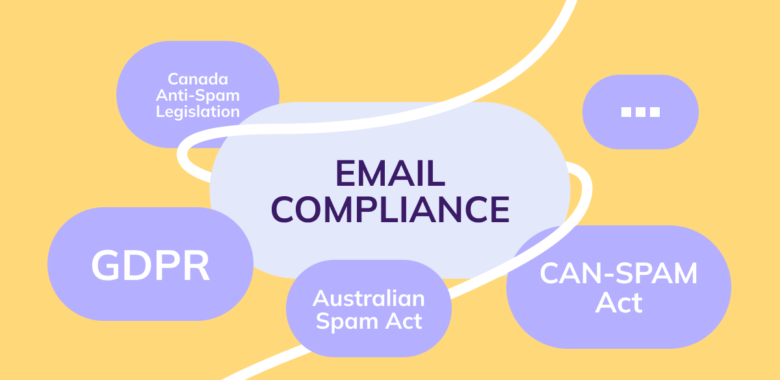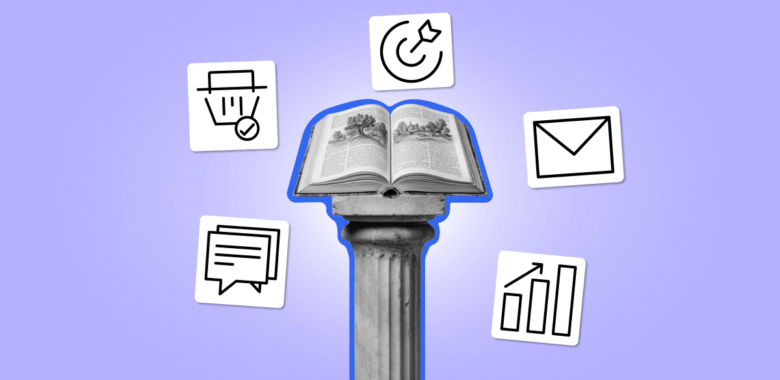Key email marketing laws and regulations to take into account
Email compliance laws aren’t the same across the world. Different countries and regions have their own legislation, while specific industries such as healthcare can have their own regulations in addition to that. Let’s check out some of the laws you’ll be most likely to encounter in your email marketing routine.
GDPR
GDPR stands for General Data Protection Regulation. This law protects the personal data of people living in the European Union, even if companies handling the data are based outside the EU. Personal data includes information like phone numbers, email addresses, IDs, and even cookies. In email marketing, any customer data you collect likely falls under this regulation, so it’s important to comply with GDPR to handle it properly.
GDPR has been in effect since May 2018, and it’s managed by Data Protection Authorities (DPAs) in each EU member state. If you find yourself in violation of GDPR, you can face some pretty hefty fines, in some cases reaching up to 4% of your company’s global annual turnover or €20 million, whichever is higher.
CAN-SPAM Act
CAN-SPAM stands for the Controlling the Assault of Non-Solicited Pornography And Marketing Act. Enacted in 2003, this US law sets the rules for commercial emails, establishes requirements for commercial messages, and gives recipients the right to stop receiving emails from businesses on demand. Unlike GDPR, which is primarily focused on data collection, CAN-SPAM specifically regulates how companies can legally send out certain types of emails, like those that are primarily intended to advertise products or services.
According to the Federal Trade Commission, which is responsible for enforcing CAN-SPAM, each separate email that violates this law is subject to penalties of over $50,000.
HIPAA
HIPAA stands for the Health Insurance Portability and Accountability Act. This US law was enacted in 1996 and protects people’s health information. It makes sure that your medical records and personal health details stay private and are handled safely. HIPAA sets the regulations for who can see or share your health information and how it should be protected, especially when it’s stored electronically. It applies to doctors, hospitals, insurance companies, and anyone who deals with health data.
Thinking this legislation is irrelevant to you as an email marketer? Think again! If you’re dealing with protected health information (PHI), this can fall under the scope of HIPAA. This can include sending emails on behalf of a healthcare provider or organization (like a hospital or insurance company), or including any PHI, such as patient names, medical records, treatment details, or billing information, in your emails. It also means you need to use encryption or other security measures if you’re sending marketing emails with sensitive health data.
CCPA
You already know about the CAN-SPAM Act in the United States, but some states have their own legislation in addition to that. This includes CCPA — the California Consumer Privacy Act, a law passed in California in 2018. It gives California residents more control over how their personal information is collected, used, and shared by businesses. This includes the rights to know what personal data companies collect, to request its deletion, to opt out of data sales, and to be protected from discrimination for exercising the said rights.
While CCPA is specific to California, it also affects businesses located elsewhere if they’re handling the data of California residents. It also only applies to businesses that generate over $25 million in revenue, collect data on 50,000 or more consumers, or earn more than 50% of their revenue from selling personal data.
Canada’s Anti-Spam Legislation
Canada has pretty strict anti-spam laws that apply to any communication sent by a Canadian company, to another Canadian company, or any message that is routed through a Canadian server. The CASL law covers everything from spam email and text messages to phishing for sensitive information like passwords.














